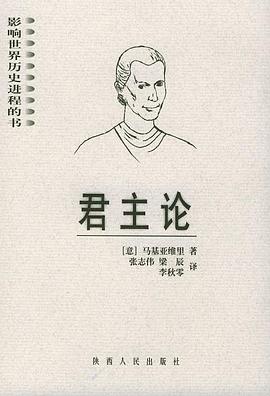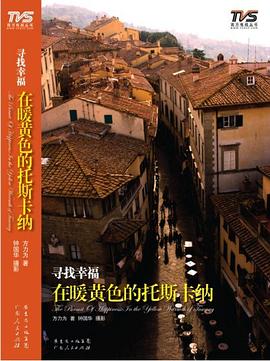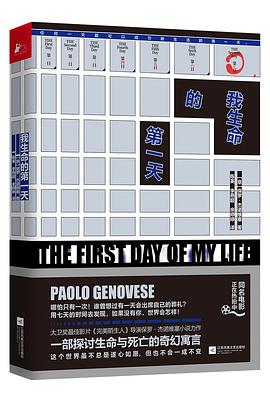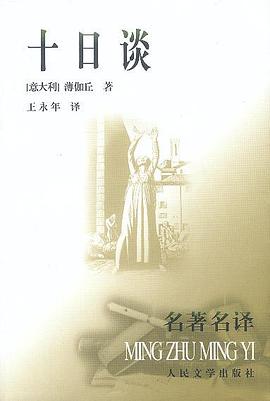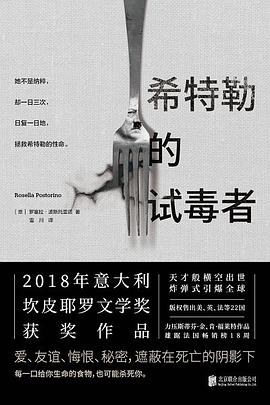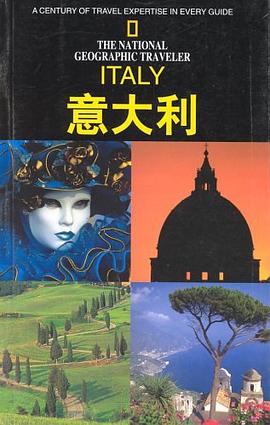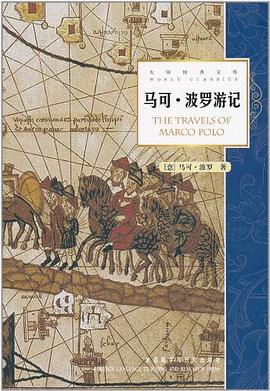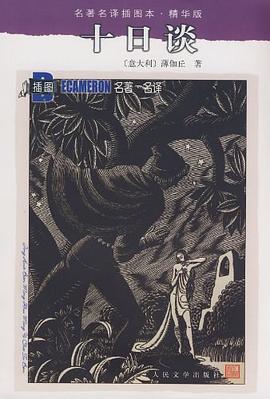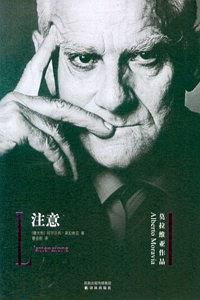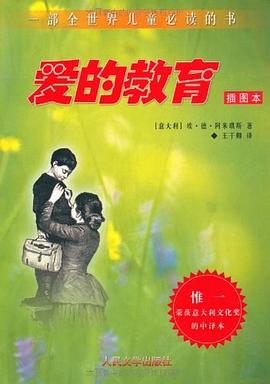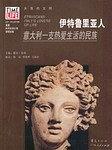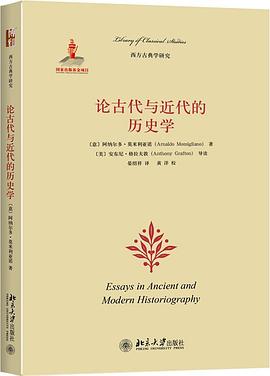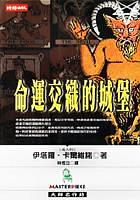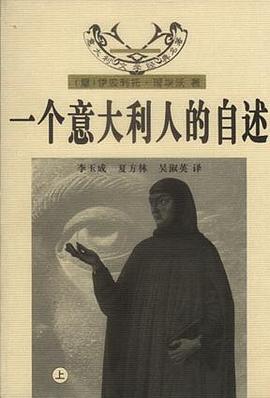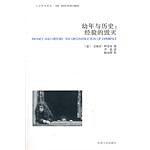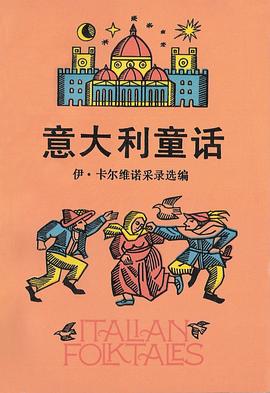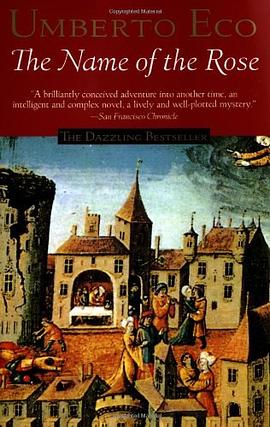

具体描述
The year is 1327. Franciscans in a wealthy Italian abbey are suspected of heresy, and Brother William of Baskerville arrives to investigate. When his delicate mission is suddenly overshadowed by seven bizarre deaths, Brother William turns detective. He collects evidence, deciphers secret symbols and coded manuscripts, and digs into the eerie labyrinth of the abbey where extraordinary things are happening under the cover of night. A spectacular popular and critical success, "The Name of the Rose" is not only a narrative of a murder investigation but an astonishing chronicle of the Middle Ages. --This text refers to the Paperback edition.
作者简介
Umberto Eco (born 5 January 1932) is an Italian medievalist, semiotician, philosopher, literary critic and novelist, best known for his novel The Name of the Rose, an intellectual mystery combining semiotics in fiction, biblical analysis, medieval studies and literary theory. His 1988 novel Foucault's Pendulum has been described as a "thinking person's Da Vinci Code". Eco is President of the Scuola Superiore di Studi Umanistici, University of Bologna. He has also written academic texts, children’s books and many essays. Eco was born in the city of Alessandria in the region of Piedmont. His father, Giulio, was an accountant before the government called upon him to serve in three wars. During World War II, Umberto and his mother, Giovanna, moved to a small village in the Piedmontese mountainside. Eco received a Salesian education, and he has made references to the order and its founder in his works and interviews. His family name is supposedly an acronym of ex caelis oblatus (Latin: a gift from the heavens), which was given to his grandfather (a foundling) by a city official. His father was the son of a family with thirteen children, and urged Umberto to become a lawyer, but he entered the University of Turin in order to take up medieval philosophy and literature, writing his thesis on Thomas Aquinas and earning his BA in philosophy in 1954. During this time, Eco left the Roman Catholic Church after a crisis of faith. After this, Eco worked as a cultural editor for the state broadcasting station Radiotelevisione Italiana (RAI) and also lectured at the University of Turin (1956–64). A group of avant-garde artists—painters, musicians, writers—whom he had befriended at RAI (Gruppo 63) became an important and influential component in Eco's future writing career. This was especially true after the publication of his first book in 1956, Il problema estetico di San Tommaso, which was an extension of his doctoral thesis. This also marked the beginning of his lecturing career at his alma mater. In September 1962, he married Renate Ramge, a German art teacher with whom he has a son and a daughter. He divides his time between an apartment in Milan and a vacation house near Rimini.
目录信息
Preface
Prologue
Part 01:First Day
Chapter 01: Prime
Chapter 02: Terce
Chapter 03: Sext
Chapter 04: Toward Nones
Chapter 05: After Nones
Chapter 06: Vespers
Chapter 07: Compline
Part 02: Second Day
Chapter 08: Matins
Chapter 09: Prime
Chapter 10: Terce
Chapter 11: Sext
Chapter 12: Nones
Chapter 13: After Vespers
Chapter 14: Compline
Chapter 15: Night
Part 03: Third Day
Chapter 16: From Lauds to Prime
Chapter 17: Terce
Chapter 18: Sext
Chapter 19: Nones
Chapter 20: Vespers
Chapter 21: After Compline
Chapter 22: Night
Part 04: Fourth Day
Chapter 23: Lauds
Chapter 24: Prime
Chapter 25: Terce
Chapter 26: Sext
Chapter 27: Nones
Chapter 28: Vespers
Chapter 29: Compline
Chapter 30: After Compline
Chapter 31: Night
Part 05: Fifth Day
Chapter 32: Prime
Chapter 33: Terce
Chapter 34: Sext
Chapter 35: Nones
Chapter 36: Vespers
Chapter 37: Compline
Part 06: Sixth Day
Chapter 38: Matins
Chapter 39: Lauds
Chapter 40: Prime
Chapter 41: Terce
Chapter 42: Sext
Chapter 43: Nones
Chapter 44: Between Vespers and Compline
Chapter 45: After Compline
Chapter 46: Night
Part 07: Seventh Day
Chapter 47: Night
Chapter 48: Last Page
· · · · · · (收起)
读后感
一本2010年读到今天的书,一直没有读完,最近又翻出来翻了一会,觉得读不完应该不是我的问题。因为不懂意大利文,找的是英译本。凭我的经验来看,英译本要更准确。但是还是那句话,因为不懂意大利文,不排除有中译本准确而英译本出错的地方,如果有我出错的地方,请懂原文的纠...
评分有人说,看完《玫瑰之名》再与埃科聊天,就好像面对一根波隆纳的罗马蜡烛;他才情焕发,心思缜密,是个诡谲但不狡狯的学者。 虽然这种形容跟鬼话一样,但我不得不承认,《玫瑰之名》的确是根漂亮的“波隆纳罗马蜡烛”。阅读它的最佳方式是:随便翻到一页,读下去,直到困倦。...
评分沈萼梅/文 意大利当代著名作家翁贝托·埃科的成名作《玫瑰的名字》的中译本终于由上海译文出版社出版了。我接到样书后,拿出三十年前(1980年)出版的、纸张业已发黄的原著感慨万千。全书共36万字,字字句句都令我回想起翻译此书所走过的历程…… 当初我是勉强承担下《玫...
评分上个周末到的书,通宵达旦的今天就看完了!感觉还行,感到自己知识面狭窄很多地方都无法参透其隐语,有人给我介绍说这是一本关于符号哲学的书,我甚至在以前没有听说过这门哲学。读这本书完全用刚看过书去,感觉这本书可以和红楼梦相提并论,虽然二者所产生的文化土壤千差万别...
评分我很久以前讀過的書,它還被改編成電影. 現在回頭來看,最大的感慨是:偏執是一種罪惡!終於了解為什麼厲官比貪官更可怕,因為他自認是正義之師.所謂"基本教義派",或是思想光譜中極左,極右,深綠,深藍,深紅,深黃.....都是可能基於他的祟高目標下,整肅異己.所以書中反...
用户评价
作者搭起一个侦探小说的架子,装进一本历史小说,一本探讨存在、真理、人性的哲学小说,一个人物结构语言皆精彩纷呈的文本舞台。变态啊,过瘾啊!读者过瘾,作者写起来更是爽到不能自拔吧。
评分妈的终于看完了,这绝对是我今年看得最慢的一本书
评分从室友那里借了看,幸好刚看过西欧中世纪史
评分里面对宗教的一些观点倒是颇有建地。场景设计的也好。
评分读得好幸苦
相关图书
本站所有内容均为互联网搜索引擎提供的公开搜索信息,本站不存储任何数据与内容,任何内容与数据均与本站无关,如有需要请联系相关搜索引擎包括但不限于百度,google,bing,sogou 等
© 2025 book.quotespace.org All Rights Reserved. 小美书屋 版权所有

